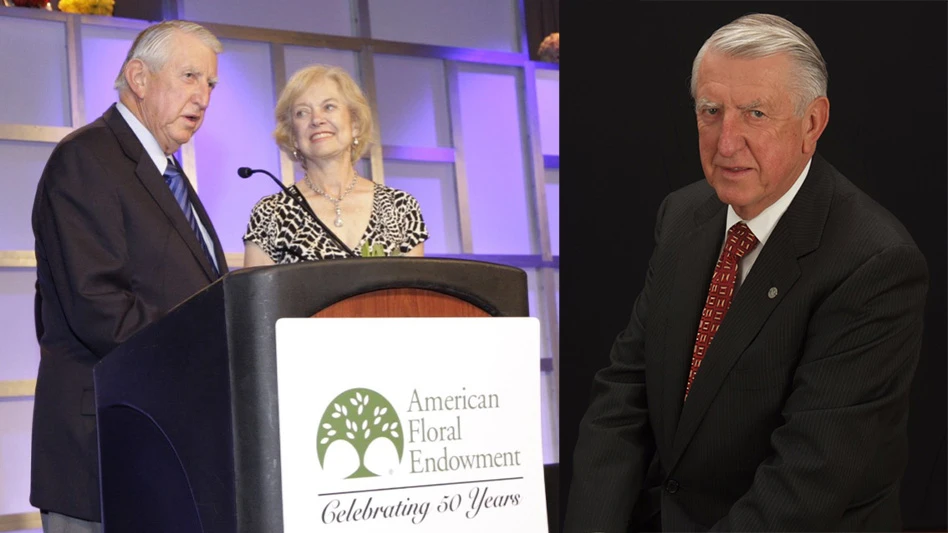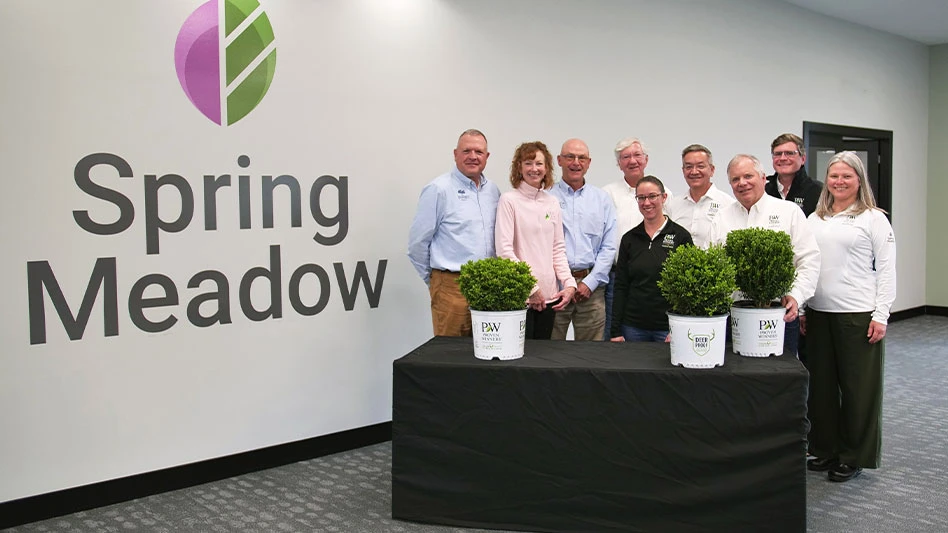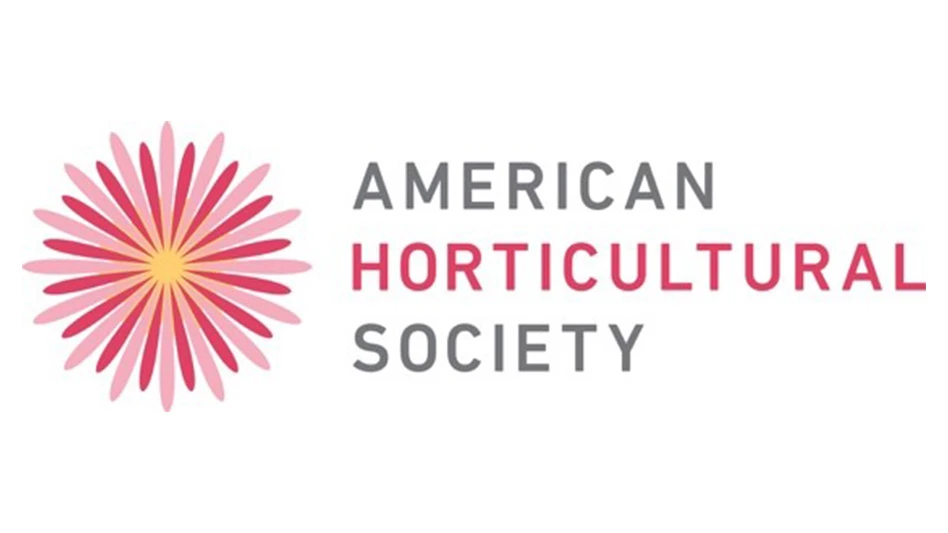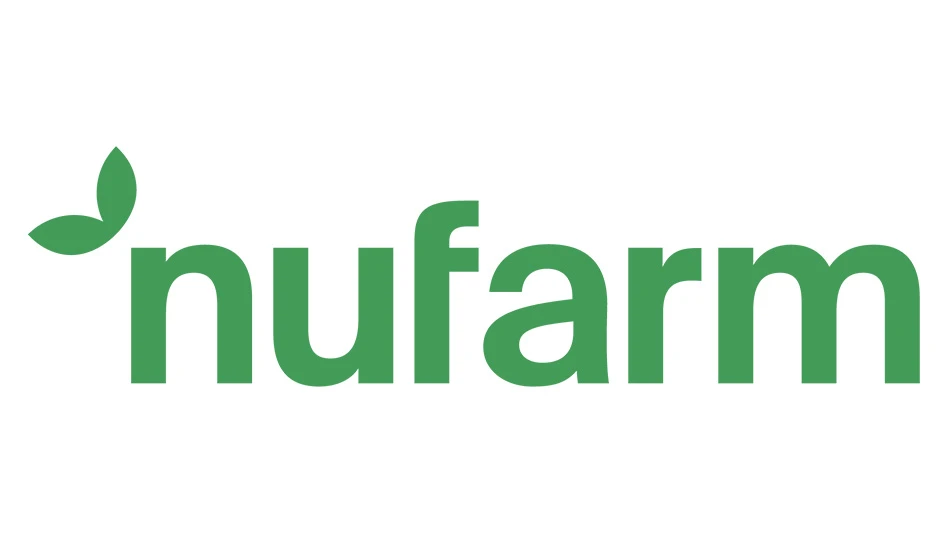
Photos by James Linkowitz
Colesville Nursery has remained in the same family for 50 years. Through many trials such as starting a new business, relocating production sites, battling a recession, navigating the uncertain times of COVID and coming head-to-head with new technology and extreme weather conditions, the nursery has never failed to adapt. And in the horticulture industry … adaptability is a necessity.
In 1974, Butch Gaddy and Dearing Gardner decided to start a nursery business in Charles City, Virginia. Colesville Nursery originally sold poinsettias and bedding plants such as annuals, and the small business had around four employees.
“We did just about anything to make payroll at that point,” says Butch, owner of Colesville Nursery.
Then in 1984, Butch decided to move the family business to Ashland, Virginia, where he, his wife Dearing and brother-in-law Al Gardner got Colesville up and running at its new location, Nursery Road. Originally, they bought some of their plants from vendors and grew Japanese hollies, junipers and other broadleaf evergreens.
In 1999, they decided to purchase additional land to grow more of their plants locally. This investment allowed them to expand their inventory to container-grown perennials, shrubs and B&B trees.
“[Purchasing the farm] has proven to be better for plants getting established in this area, and it also allows us to have a larger profit margin,” says Kate Leffler, president and general manager of Colesville Nursery. “We’re able to keep prices at what we want them to be for our customers, so we have the opportunity to keep them a little lower than our competitors.”

Through expanding the range of customers and diversifying its plant selection, the nursery’s revenue has continued to increase since starting 50 years ago, and its revenue has more than doubled in the last 15 years.
“Our customers count on the quality of our plants and the service that we provide, so we think our revenue will continue to increase depending on what the economy does,” Butch says.

Kate explains that it takes 100% commitment from the team to maintain quality products. “It takes everything,” Kate says. “There’s people that come in everyday of the week, even if we’re not open, to maintain, water and make sure things are taken care of.”
Colesville’s business philosophy is to sell the best possible plants while providing the best possible service. Today, the business is 85% wholesale and 15% retail. The nursery specializes in container-grown shrubs, perennials, grasses, natives and B&B trees. The nursery grows 800 varieties of perennials.
Because native plants are popular in the trade right now, the nursery adapted to the needs and the wants of the public and is heavily involved with native plant production.
“That’s been a huge trend for the past five years, and I don’t think it’s going to go away,” Kate says.
The Nursery Road location is 56 acres with four of those dedicated to growing perennials, and the remaining acreage consists of irrigation ponds, around 70 greenhouses and a retail store front.

The farm location is 100 acres with 30 acres dedicated to field production for B&B plants and 20 acres with around 85 greenhouses. The remaining acreage consists of irrigation ponds and woods.
The nursery’s customer base consists of landscapers, municipalities and universities within a 100-mile radius, and the University of Virginia has been its top customer for the last 10 years. The nursery provides plants for customers throughout Virginia, Western Virginia, Washington D.C. and Maryland.
In the past year Colesville Nursery sold and/or grew 363 different species, varieties and cultivars of trees, 1,054 different species, varieties and cultivars of shrubs and 1,150 different species, varieties and cultivars of perennials.
Thuja x ‘Green Giant’, Ilex crenata ‘Compacta’ and Dryopteris erythrosora (Autumn Fern) were the top tree, shrub and perennial sold this past year.
The team at Colesville Nursery seek out new plants to bring success to their customers, and Kate enjoys staying up to date with consumer trends and the latest breeding breakthroughs. They also have great relationships with their vendors who inform them of what they should buy.
“We all are so interested in this industry and in what we do,” Kate says. “A lot of our employees listen to podcasts about plants and really hone in on what we should be doing and make sure that we have it. It’s cool that we have those kinds of resources now. Whereas years ago, there wasn’t internet or any way to do that except to visit places, visit vendors and go to trade shows. We still do those things, but that’s not where we get the information from anymore.”
Kate explains that part of the business strategy is to never sell out of plants. There is always something growing at the farm and another crop on the way.

Find your roots
Butch lived on a farm his entire life, but he was never involved with the family business. He received a bachelor’s degree in business administration from St. Andrews University in North Carolina. After college, he didn’t know what he wanted to do for a career, so he worked for a couple of different garden centers. He discovered a passion for plants and enjoyed working with people in the horticulture industry.
“I’ve always been an outdoors guy,” Butch says. “I could never see myself working in an office, so this was certainly the best alternative I knew of.”
Kate remembers growing up at the nursery and coming to work with her parents. She enjoyed working at the nursery during the summer and on Saturdays when she was a teenager. She received a bachelor’s degree in Spanish and Latin American studies from James Madison University, where she also took several business classes.
After graduating from college, Kate had several jobs before returning to the nursery full time. She worked at summer camps for children and with a group of children that were learning English as a second language.

“I had a bunch of other odds and ends jobs, but I always knew [working at the nursery] was something that I wanted to pursue.”
In 2008, Kate decided to work at the nursery full time because it was one of the only ways to keep the business sustainable for the family and keep the family business once her parents were getting older.
“Starting during the recession was a huge challenge, but I didn’t know any different from that,” Kate says. “There would be days that we didn’t know what was going to happen. We’d have payroll in a couple of days, and we just hoped that we would get more orders in.”
The nursery was able to stay in business during the recession by adapting to more retail customers. The team built a little building called “The Garden Shop” around the idea of more people doing landscaping themselves instead of hiring someone.
After several years working her way up in different roles at the nursery, Kate eventually became general manager in 2017 and later became vice president and now president of the nursery.
“Once people are adults and move out of their parents’ house, get married and have a family, many people don’t get to see their parents and siblings all the time,” Kate says. “I see mine every day, and that part of the business is a real gift. I think for a lot of family businesses it might not end up that way because of conflicts or disagreements and people not being able to move past that, but I don’t feel that here and never have.”

Stephen Mattice, Kate’s cousin, is the farm manager at the nursery, and he’s been with Colesville Nursery for 16 years.
“Working for my family’s business means everything to me,” Stephen says. “I’m so grateful for the opportunity to have worked at Colesville alongside my cousins and uncle Butch and even more grateful to be a part of their family. I’m proud to have witnessed my cousins’ step into their new roles in the company with grace, professionalism and a desire to improve on what was already a good thing. I think one of the things that makes Colesville such a great company is how they consider all their employees as family.”
Kate’s younger brother, Sam Gaddy, has been working at Colesville Nursery since 2007, and he started full time in 2013.
“Working with Kate and Stephen has been a wonderful learning experience, getting their takes on situations and issues has been invaluable in my development as a nurseryman,” says Sam, buyer and irrigation specialist. “Working at the family business means I get to work with people I love and enjoy every day. It does include trials and tribulations, but I would not change it for anything.”

Not afraid of change
Maintaining what people love about Colesville Nursery has always been important to Kate, and she believes people love that it’s a family business, that a lot of the same employees have been there for several years and that the nursery produces quality products.
But Kate also understands that to be successful in a constantly changing industry, it’s important to change with the times and be adaptable. In recent years, the main element that has changed at the nursery is technologies and processes. The team added a high-speed business line down the driveway so they could update the security and telephones. They recently renovated the office, and the nursery's IT company built a new server closet where the equipment is in a temperature-controlled space.
“We’ve had some employees, my dad being one, that preferred the way we used to do things; it was a little simpler,” Kate says with a laugh. “One struggle that people have is that some of these processes that we used to do are obsolete at this point.”
There’s a lot more computer-work at the nursery, and the way people communicate has changed. Email is the preference and sometimes texting. The nursery’s main way of advertising used to be word of mouth. There wasn’t a whole lot of marketing or public relations, but now Colesville Nursery has a marketing specialist that oversees marketing, community outreach and social media.
“Our industry is constantly changing and evolving from season to season — things that work in the past may not be the best practice for the present or future,” Sam says. “If one cannot adapt, then one will not last.”
Employee engagement and retention are also very high on Colesville Nursery's list of priorities and challenges. Since the nursery is a family business, the management team strives to treat employees like they are part of the family.

“We love to celebrate all of our employees with employee appreciation days,” Kate says. “We typically go to our farm location to have a few short team building activities and provide a nice lunch cooked and prepared by upper management and owners. After lunch, we give our employees the rest of the day to play and hang out at the pavilion with games, do a river float or just play down at the water.”
The nursery employs 60 people, and 12 of those employees are Hispanic. Kate’s ability to speak Spanish has helped with the hiring process of Hispanic employees and communicating with them without a language barrier.
Since Kate has become president of the company, one of the biggest changes she’s made is providing more employee benefit options and encouraging employees to tell management how they feel about something.
“I’m not sure that was something that was really acceptable or that anyone would even think of doing 20 years ago, but I like to keep up with what’s going on in my employees’ lives and if we can help, we will,” Kate says. … “We have 21-year-olds working here, and we also have 60-year-olds working here. We do our best to accommodate most life circumstances and be attentive to individual’s specific needs.”
The nursery’s benefit package includes several health insurance options, dental, vision, life insurance policy, 401(k) matching program and an IRA option.
Several of the employees work at the nursery because their parents used to work there, and some employees enjoyed it so much that they thought their son or daughter might be interested in working there too; now, they work at the nursery together.
“Kate has brought the nursery into the digital world,” Butch says. “The things she’s done here to improve employee relationships and customer relationships are things that probably would never have happened if I was still around. I’m really proud of the work she has done, and I think the nursery is in great hands.”
Another challenge the company faces is keeping up with all the new diseases that are found with testing and pathological research, but Butch and Kate believe that it’s important to keep a level head. They know there’s always going to be a new disease that causes concern but eventually, it becomes manageable.

“It becomes manageable because we talk with other nurseries that are going through the same thing,” Kate says.
“One thing this industry has always done is different companies share their knowledge,” Butch says. “It’s pretty rare in business that competitors will do that, and all the folks that we’ve always worked with in the industry, competitors or customers, they’re always willing to share, and that’s a big deal.”
The nursery encountered boxwood blight several years ago, and that challenge changed the way the production team currently stores boxwood during the winter and how they keep boxwood contained and separated from other crops.
Colesville Nursery has a dedicated team of people that scout and treat plants to prevent pests from becoming a bigger problem. The team understands the importance of IPM, and they do their best to keep the plants healthy and looking great. Over the last five years, the team began using beneficial insects in some areas, and their goal is to use as little harsh chemicals as possible.
“Everything is a little bit of a learning curve, and our IPM management team are the ones that wanted to try beneficial insects,” Kate says. “It’s worked in some circumstances, and there are definitely some that we’ve totally botched or there wasn’t anything for the beneficials to eat.”
A more recent challenge at the nursery is vascular streak dieback (VSD), and the team is mitigating those problems, which sometimes can be by throwing away an entire crop. The team is also aware of the spotted lanternfly and the effect it’s had in other states. They’re staying informed on that pest, so they’ll be prepared for when/if it arrives at the nursery.
“It’s important to change and adapt with the times in the horticulture industry,” Stephen says. “The industry changes and we can’t be left behind. We face new challenges with climate change, different pests and new plant diseases. We have to continue to learn and apply what we learn to our business to meet the expectations of our customers.”
Even with constant challenges and changes, Colesville Nursery has continued to adapt to defeat every obstacle. With a strong management team made of family and friends, the business has thrived for 50 years, leaving a lasting impact on its customers and an optimistic view of what’s to come, understanding that adaptability is a nursery necessity.
Get curated news on YOUR industry.
Enter your email to receive our newsletters.
Explore the October 2024 Issue
Check out more from this issue and find your next story to read.
Latest from Nursery Management
- The HC Companies, Classic Home & Garden merge as Growscape
- Terra Nova releases new echinacea variety, 'Fringe Festival'
- Eason Horticultural Resources will now officially be known as EHR
- BioWorks receives EPA approval for new biological insecticide for thrips, aphids, whiteflies
- Ellen Mackenbach-Lakeman appointed new CEO of Dümmen Orange
- The Growth Industry Episode 3: Across the Pond with Neville Stein
- Southern Garden Tour sets 2025 dates for trial garden open houses
- New book explores plants that thrive in Rocky Mountains






